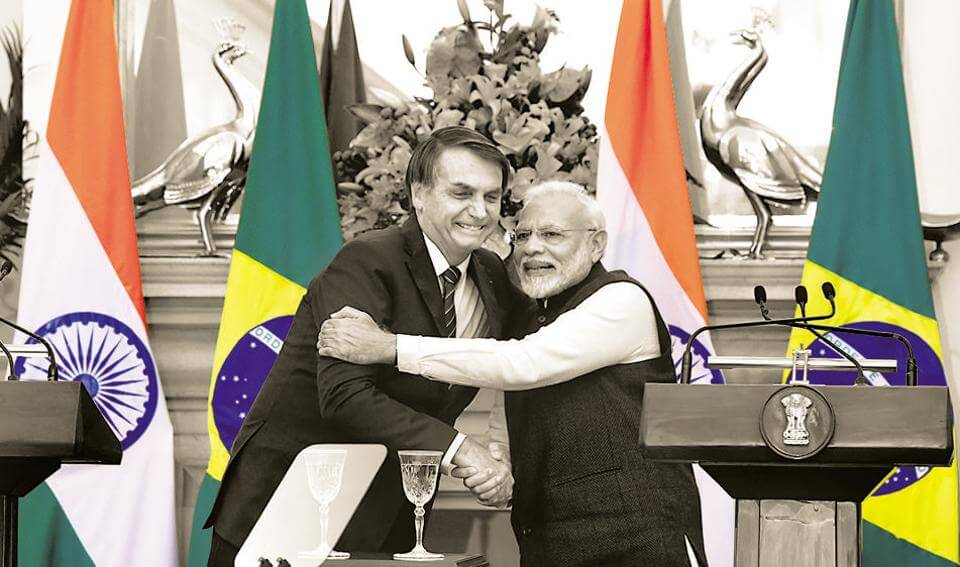Brazilian President Jair Bolsonaro witnessed the Republic Day celebrations during his four-day tour to India.
This is Bolsonaro's first visit to India after he assumed office in 2019, and the third by a head of state from Brazil. There has been an upswing in relations between India and Brazil. Brazil opposed India’s ‘Operation Vijay’ to liberate Goa from Portuguese rule in 1961. However, during the 1990s, both countries undertook economic reforms and expanded trade relations.
Brazil is looking to expand its trade relationship with India in lieu of a deteriorating partnership with Argentina. India, on the other hand, is interested in diversifying its energy needs away from the Gulf. India is one of the biggest oil importers and is keen on tapping into resource-rich Brazil. Currently, Brazil is one of the world’s top ten oil exporters and exports 30% of its oil to India.
The two countries signed a Memorandum of Understanding (MoU) to cooperate in the oil and gas, and bio-energy sectors. They also inked 15 agreements to boost cooperation and strengthen the bilateral strategic partnerships between the two countries in areas of agriculture, bio-fuels, animal husbandry, health and science, and technology. The two countries aim to formulate an action plan to restart the joint commission at the foreign ministerial level and convene every two years. They have also agreed to set a target of US$ 15 billion in bilateral trade by 2022. In 2018-19, bilateral trade was $8.2 billion.
Modi referred to the strategic meeting between the countries as a “new chapter”. India’s invitation to Bolsonaro is in stark contrast to his canceled visit to New York following protests from gay rights and environmental activists groups. Bolsonaro is a far-right populist president of Brazil and one of the most radical Brazilian leaders after the return of democracy in 1985. He has made several controversial remarks on the land rights of indigenous communities, the environment, and gender issues. Days ahead of his visit to India, tribal leaders in Brazil launched a protest against his policies allowing commercial mining and ranching on the protected lands and promoting economic development in the Amazon region.
Modi’s invitation to Bolsonaro has drawn criticism in India. Brazil is a major sugarcane producer and directly competes with India's sugarcane industry. In 2019, Brazil campaigned against India at the World Trade Organization (WTO) for subsidizing its farmers. The All India Sugarcane Farmer’s Federation (AISFF), Swabhimani Shetakari Sanghatana, Students’ Federation of India (SFI), and the All India Democratic Women’s Association (AIDWA) all protested against Bolsonaro’s visit. Moreover, people protesting against the air pollution crisis in the New Delhi held placards saying #NoBolsonaro.
Both the Indian Prime Minister and Brazilian President have unleashed a wave of right-wing policies in their respective countries. Maria Antonieta Lins, an expert on International Relations, said: “Unfortunately, among the characteristics that bring both countries together is the conservative orientation of the two governments”.
Image Source: Hindustan Times

